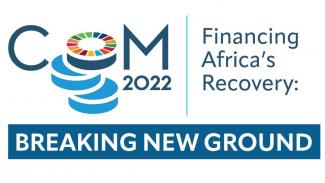Achieving the promise of the 2030 Agenda for Sustainable Development will require the mobilization of domestic resources to finance development. Doing so represents a significant challenge for African economies, for which tax revenues are generally insufficient to meet public-spending demands and access to international financial markets is significantly limited. The coronavirus disease (COVID-19) crisis has exacerbated the pressure that Africa faces in financing its development, since the health crisis placed additional strain on public finances, made debt levels unsustainable and caused a retraction of foreign direct investment. Illicit financial flows remain a major roadblock to domestic-resource mobilization, which poses a threat to the financing of development. Massive resource leakages through corruption, tax evasion and aggressive tax avoidance through tax havens and offshore financial centres continue unabated, placing those resources beyond the reach of Governments. The 2030 Agenda calls for the reduction of illicit financial flows and the strengthening of efforts to recover and return stolen assets. Given the scale and transboundary nature of illicit financial flows, an ambitious, multilateral approach is required to achieve that goal.
